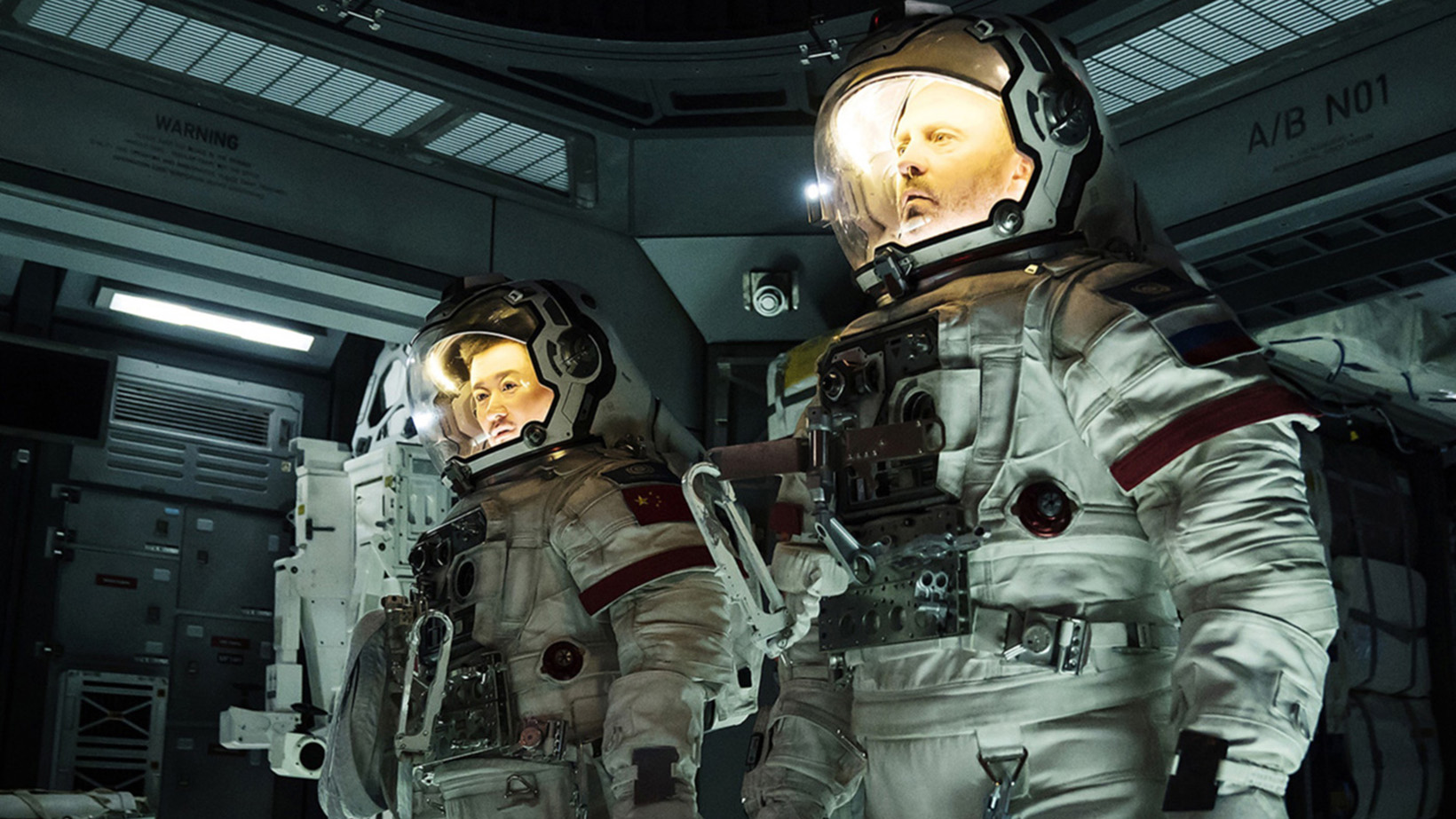Navigation auf uzh.ch
Navigation auf uzh.ch

A few hundred years from now, the sun is about to explode in a helium flash and destroy Earth. Rather than abandon their home planet, humanity decides to build massive Earth Engines to move the entire planet and escape to a far-away system.
This is the plot of The Wandering Earth, a short story published by Chinese science fiction writer Liu Cixin in 2000. Nineteen years later, the story was adapted into a film, which went on to become one of the highest-grossing films in the history of the Chinese box office. The film also found an audience abroad when Netflix picked up the streaming rights. A prequel, released in 2023, was shown in cinemas across the globe.
The Chinese blockbuster’s success story is a good example of the recent hype surrounding Chinese science fiction. Both Mark Zuckerberg and Barack Obama have come out as fans of Liu Cixin’s work, while Netflix’s adaptation of his book The Three-Body Problem hits the small screens in the spring. In the series, humanity has to deal with an alien civilization’s plans to invade Earth.
But what are the reasons for China’s suddenly booming sci-fi industry? “Many people are looking to China with worry or curiosity as the superpower of the future,” says Jessica Imbach, a teaching and research assistant at the Institute of Asian and Oriental Studies of UZH. But another reason, she adds, is that in times of climate change and other global crises supposedly brought about by Western ideas, people are searching for alternatives. “Science fiction is often considered the literature of ideas. By reading Chinese science fiction, people are hoping to catch a glimpse of where humanity may be headed.”
Jessica Imbach researches technological transformation in Chinese literature and is the editor of a book, published last year, that explores the digitalization of the Chinese cultural landscape. She was also awarded a FAN Award, bestowed on junior researchers for outstanding academic achievements, in the area of arts and social sciences.
The Chinese studies expert is interested in the societal changes that go hand in hand with technological advances – for example, the global rise of TikTok, the everything app WeChat, or poems written by artificial intelligence. In China, literature that is available online is very popular. If official figures are to be believed, reading is a more popular online activity among Chinese than playing games – mostly on pay-per-view platforms.
However, Imbach has to dampen expectations that reading Chinese sci-fi stories provides any sort of crystal ball-like powers to predict the future. “Despite having different geopolitical variables, Chinese science fiction is no different from US science fiction.” That’s why it is not possible to draw any conclusions for Chinese society, let alone the future of the human race, from individual works.

Science fiction sends a message to the world that China no longer only produces goods for the West but also ideas.
A much more fruitful endeavor is to ask what political developments have to do with the rise of sci-fi in China. In the early 90s, when the genre had long been on the map in the West, it was virtually nowhere to be seen in China. Fast forward 30 years, and China has for the first time hosted WorldCon, the world’s largest science fiction event. The city of Chengdu, where the conference took place in October 2023, even built a massive science fiction museum especially for the conference. Science fiction is still much smaller than for example fantasy, according to Jessica Imbach, but its rapid rise from niche literary genre to state-sponsored cultural industry is symbolic of China’s breakneck technological transformation.
The success of sci-fi has also put the genre on the government’s radar. “Firstly, science fiction promotes interest in science and technology, which are extremely important growth drivers in China,” says the researcher. “Secondly, it sends a message to the world that China no longer only produces goods for the West but also ideas.” For many years, China was considered as lacking in innovation. Now, the government is actively promoting the genre in an effort to create a kind of cultural image of China’s rapid technological rise. Despite the impressive production ramp-up, however, many Chinese sci-fi authors are currently hanging up their pens or moving into different genres, according to the annual industry report on Chinese science fiction.
How to explain this paradox? The Chinese government is mainly concerned with managing the future. It views science fiction as a way to explore the risks and opportunities of technology as realistically as possible, explains Jessica Imbach. “Technological progress, which is essential for China’s economic growth, is fraught with risk and uncertainty. Science fiction can provide crisis scenarios, so to speak.” But how can authors be expected to write about an alien invasion if they also have to take into account the fate of China’s ruling Communist party? It’s very likely that only those authors who are willing to provide the “right” answers will stay true to the genre – for the sake of their commercial success. If they aren’t, they run the risk of censorship.
It’s been several years since Liu Cixin last published a story. When he started out as a writer in the late 1980s, he was working as a computer engineer in a coal-fired power plant. His debut novel China 2185 is about the digital resurrection of China’s former dictator Mao Zedong. Liu published it on the internet, which at the time was still in its infancy. It wasn’t until many years later that the novel made a splash, despite never being officially published or making it into print. To this day, it has still not been translated into English in full. According to Imbach, this also has to do with its elements of sociopolitical criticism.
Liu’s short story The Wandering Earth is an excellent example of how the Chinese government uses the rise of science fiction for its own purposes. The original short story, no more than 50 pages long, is written from the point of view of an unnamed protagonist who has never seen the sun. The story can be read as a critique of technology – what makes life worth living when religion and art no longer exist and science and technology are the only things that count? The live-action film, which was adapted by a Chinese government agency, fails to address any of these questions and instead opts to focus on how Chinese superheroes and high-tech save the day.
It’s a case of a thought-provoking dystopian short story turning into an action flick with subtle traces of state propaganda. Liu Cixin, who acted as a producer of the film, has since found a new role touring the country as a kind of tech ambassador. He also serves as the director of the Science Fiction Planet Research Center at AI start-up SenseTime, which among other things develops facial recognition software for the Chinese government. Asked why he has stopped writing, Liu reportedly replied that he has already said everything he has to say. Whether it stays that way, time will tell.